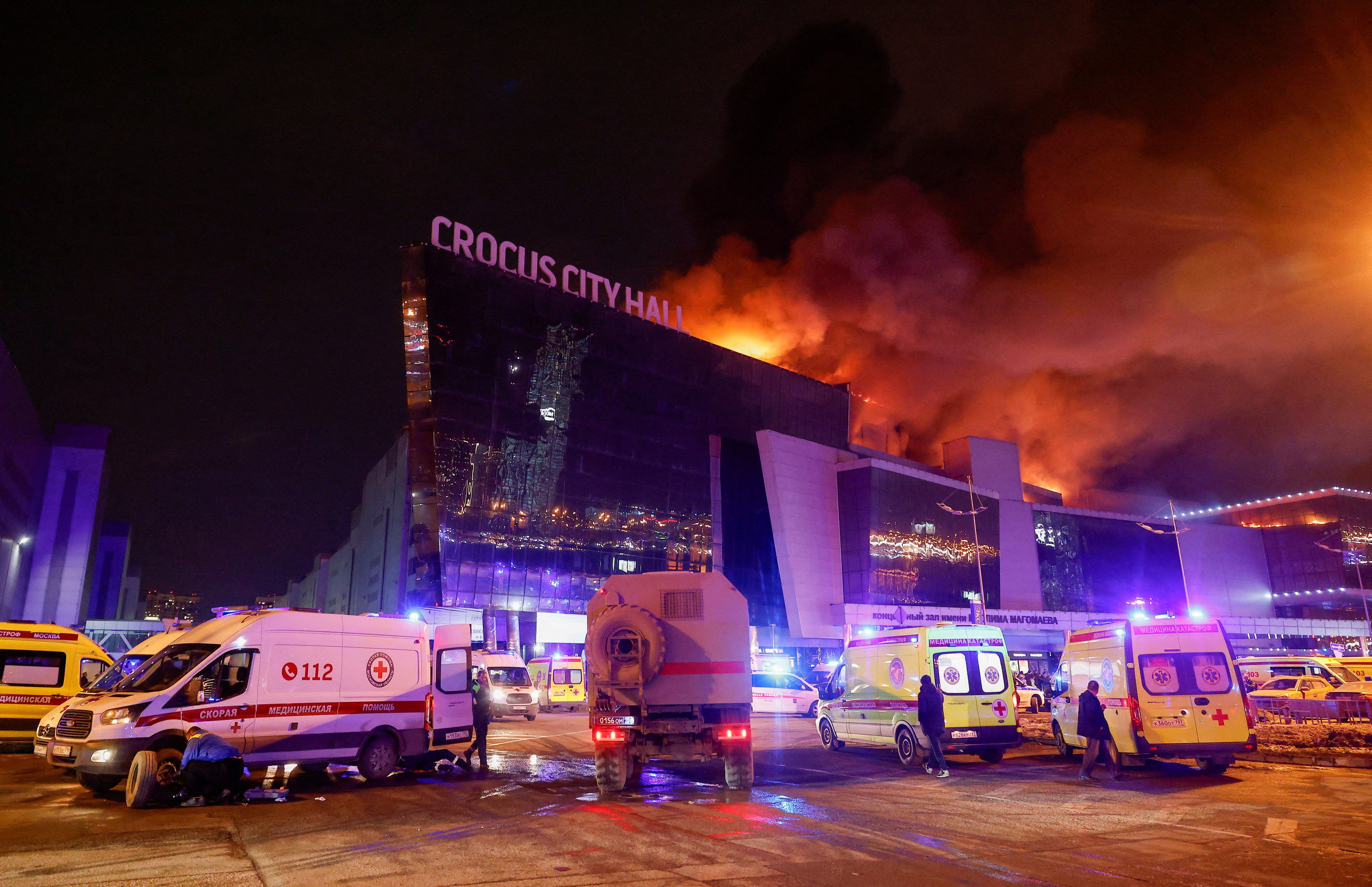At least 40 people are dead and scores are injured following an attack at a concert hall late Friday in Krasnogorsk, a northwest suburb of Moscow, one of the capital’s biggest music venues. Emergency personnel helped more than 100 others evacuate the building.
The Islamic State group has claimed responsibility for the attack, but Russian authorities have not yet commented on the claim. Videos show multiple gunmen on the scene, with fans who were awaiting a performance by the rock band Piknik heard screaming amid the gunfire. State media reported that there was an explosion just before 10 p.m. local time, and part of the roof near the stage collapsed, with more than a third of the building on fire.
As a precaution in case of twin terror attacks, large venues in other parts of the country were also evacuated, and Russia's national guard is reportedly still looking for the gunmen.
Earlier this month, the US Embassy in Russia warned its staffers about reports of extremists who were planning to target large venues, including concerts, around Moscow. The warning was scorned by President Vladimir Putin, who referred to it as “obvious blackmail” intended to “intimidate and destabilize our society.”
There has been a recent uptick in Russian attacks against Ukraine, and the White House was quick to point out Friday that there is “no indication at this time that Ukraine, or Ukrainians, were involved in the shooting.”
